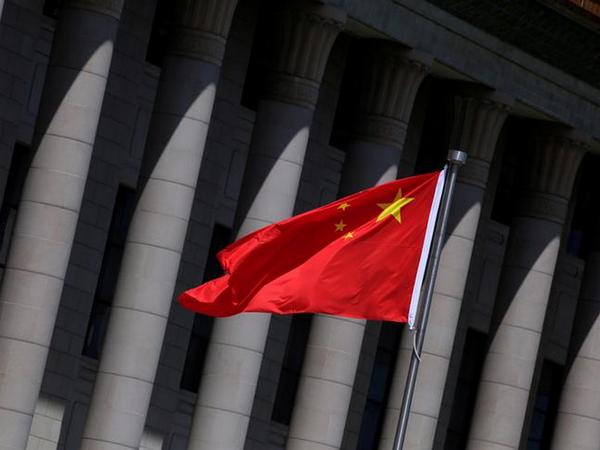China's human trafficking syndicates lure away hundreds from Southeast Asian countries: Report
According to Mekong News, this is modern-day slavery which Chinese human trafficking syndicates perpetrate without facing meaningful resistance from authorities in Myanmar, Cambodia, and Laos, all three major hubs of trafficking business, estimated to be worth tens of millions of dollars.

- Country:
- China
Beijing [China], February 3 (ANI):In southeast Asian region, Chinese human trafficking syndicates operate in nexus with local authorities in countries for luring away hundreds of people on the pretext of providing them decent jobs but are forced to work in the illegal cryptocurrency business, brothels, and massage parlours, Mekong News reported. According to Mekong News, this is modern-day slavery which Chinese human trafficking syndicates perpetrate without facing meaningful resistance from authorities in Myanmar, Cambodia, and Laos, all three major hubs of trafficking business, estimated to be worth tens of millions of dollars.
In its 2021 report, the US-based Institute of Peace said Myanmar has become a centre of action for Chinese criminal groups whose networks have grown far beyond the Southeast Asian country. Chinese businessman Zhao Wei runs Golden Triangle SEZ, which is a multibillion-dollar gambling enclave and a known hub of human trafficking activity in this Southeast Asian country.
"In Kokang, the political and economic leadership of the socalled Self-Administered Zone (SAZ) has built its entire power structure on gambling and related activity," the Institute of Peace said in its report. It further added: "Kokang connections to Chinese criminal networks also run deep. Chinese court records document hundreds of criminal convictions related to illegal casinos, fraud, kidnapping, drugs, and weapons in the Kokang SAZ." Last year, the Thai police's Anti Trafficking in Person Division (ATPD) reported prosecuting 248 trafficking cases, compared with 188 in 2021. Investigation revealed that more than half of cases emerged from illegal online recruitment. Critics say a strong signal from China, which wields enormous clout across Southeast Asian, could help in eliminating the problem of trafficking of people in the region, but no one knows why Beijing continues to dilly dally over the issue even as the region is creaking under the weight of Chinese nationals-led menace.
As per Radio Free Asia, between May 2021 and May 2022, Laotian authorities rescued 477 people of Laotian and Thai nationalities from Golden Triangle SEZ where they were forced to work in massage parlors and brothels built inside premises. Myanmar has been under military rule since 2021 and turned into a fertile ground for human traffickers from China. Last year in December, three Thai women in their 20s managed to be freed with the help of an NGO from the clutch of Chinese traffickers in Myanmar's Shan state after their search for a job through a Facebook advertisement in Thailand, landed them in a prostitution racket instead.
In Cambodia, human trafficking is seen through the prism of an organized crime act that has otherwise failed under the weight of crime syndicates spawned and curated by Chinese nationals, according to Mekong News. The Mekong News report says that on September 17, 2022, weeks before organising the ASEAN summit in Phnom Penh in November, Cambodian Prime Minister Hun Sen ordered a widespread crackdown on the scourge of illegal gambling and human trafficking in the country. Media reports suggest that thousands of individuals involved in human trafficking activities in Cambodia's gambling epicenter of Sihanoukville and Phnom Penh were arrested and put behind the bars.
The business of human trafficking has still not stopped. A group of Filipinos were on January 18, rescued by authorities in Cambodia from a Chinese syndicate that allegedly forced them to work in a cryptocurrency scam. The human trafficking menace, according to Mekong News, is hurting Cambodia's image, which has of late become an epicenter of all sorts of illegal activities in the Southeast Asian region and for this, crime syndicates run by Chinese nationals are held responsible. (ANI)
(This story has not been edited by Devdiscourse staff and is auto-generated from a syndicated feed.)
ALSO READ
ASEAN's Quest for Peace: Resolving the Thai-Cambodian Border Conflict
Shaurya Bhattacharya's Close Call: A Breakthrough Finish at Asian Tour Qualifying
AFC Unveils Nations League to Elevate Asian Football Competition
AFC Launches Nations League to Boost Asian Football
Shaurya Bhattacharya's Ascent to the Top: A New Star in Asian Golf










